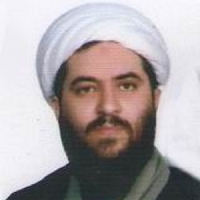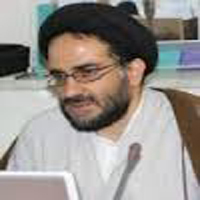A New Reading of the Theory of Causal Explanation of Voluntary Action
Islamic philosophers consider man as "agent-by-intention" in his voluntary actions, performing bodily acts with the motive of achieving an ultimate purpose. The mental existence of this purpose is seen as the final cause of the action. This study, based on library resources and using analytical, rational argumentation and introspection methods, elucidates the stages and principles of voluntary action. According to this research, the final cause of voluntary action is the agent's love for the goal rather than its mental existence. The primary aim of the agent in voluntary action is to achieve the goal associated with it. However, since this goal cannot be realized without performing the action, the love for the goal, as the final cause, renders the action leading to it desirable and prompts the agent to undertake it. The goal of the action may also serve as a prelude to achieving a higher goal, and its desirability will be dependent on the desirability of the subsequent goal. In voluntary actions, there are multiple sequential purposes, and the desirability of each goal depends on the desirability of the resulting outcome. Due to the impossibility of an infinite regress in real causes, the series of sequential final causes of an action, i.e., the agent's sequential love for each action and its resulting outcome, must ultimately end at the first final cause. Introspection of the voluntary agent and rational argumentation show that this fundamental love is the agent's love for himself and his perfections.
-
Explaining "Sex/ Gender" Duality in the System of Practical Wisdom
Hadi Mousavi *,
Metodology of Sicial Science and Humanities, -
The Place of Rationality in Razavi's Life and Teachings
Mehdi Abdullahi *
Journal of Ahl al-Bayt Studies, -
نقش عقل در معارف فقهی دین ازمنظر علامه طباطبایی با تاکید بر المیزان
محمود الیاسی، ، محمد جعفری
پژوهشنامه حکمت و فلسفه اسلامی، پاییز و زمستان 1402 -
Relationships between religious theorizing and the fields of research in humanities
Alireza Mohammadifard *, Hadi Mousavi, Seyed hamidreza Hasani
Journal of Research in Religion and Science,




